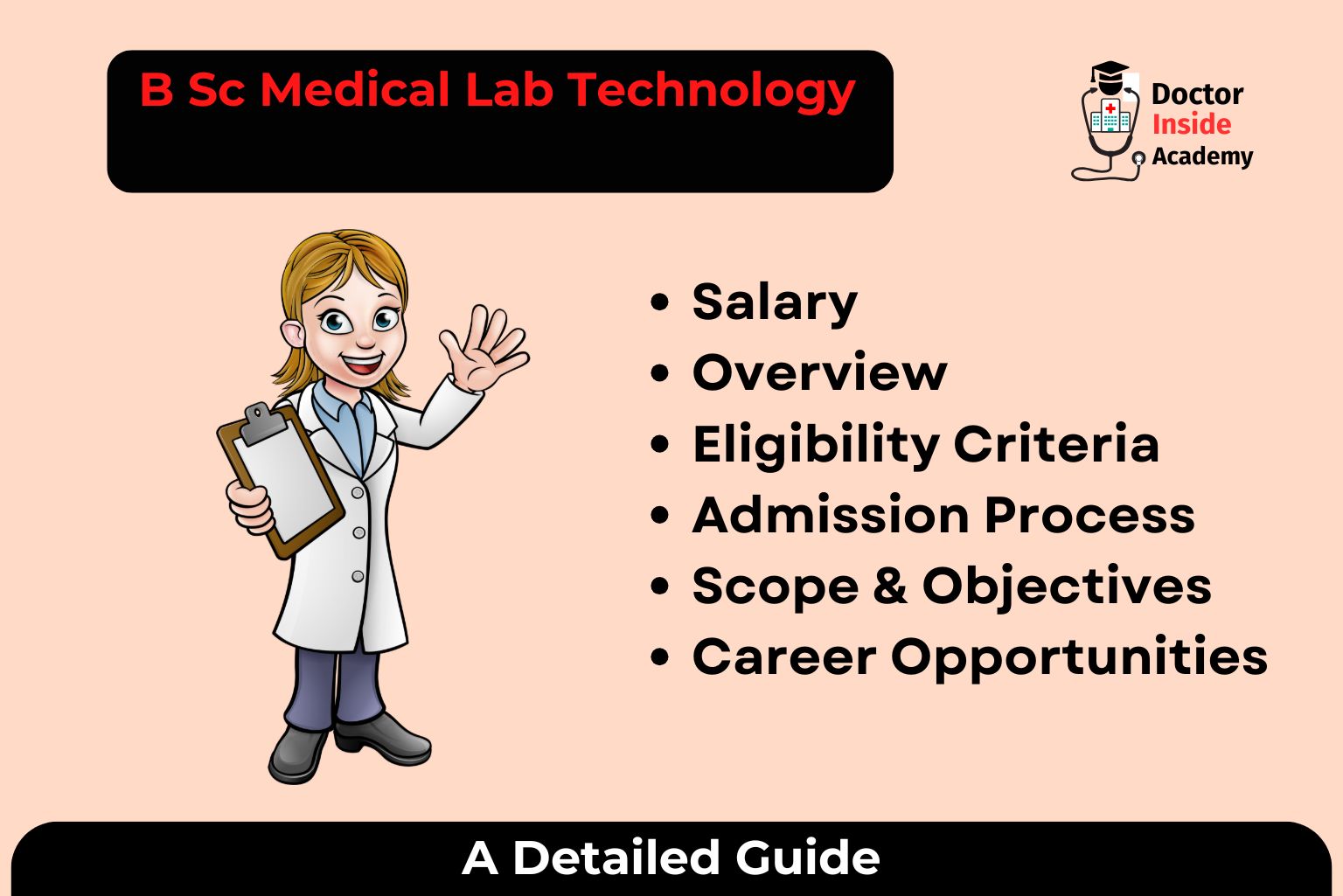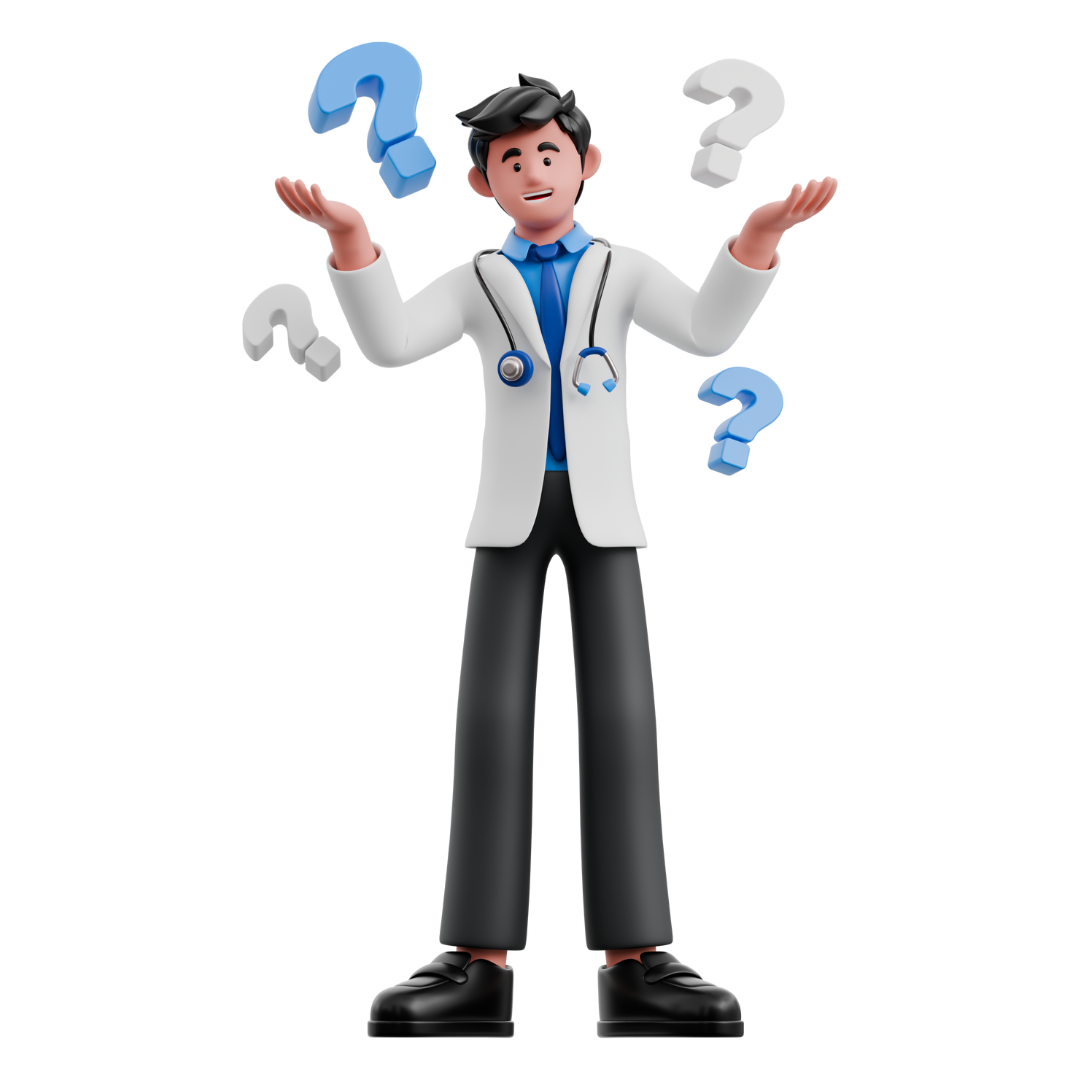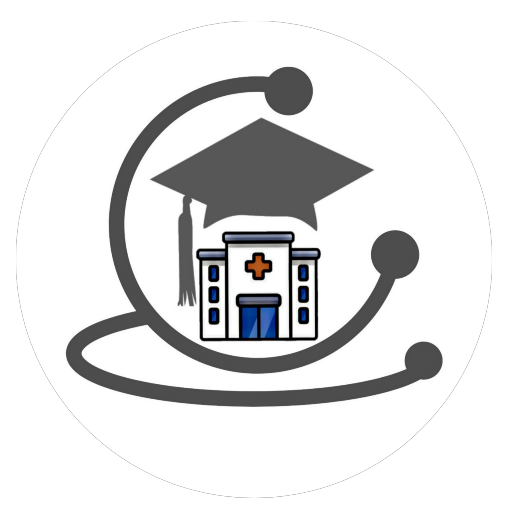
B Sc Medical Lab Technology
Duration
3 Years
Level
Under Graduation
Mode
Offline/Full Time
Overview of B Sc edical Lab Technology
Diagnostics are essential to the current healthcare system because they ensure accurate, quick, and effective treatment for illnesses. Laboratory testing, which requires complex procedures, modern equipment, and skilled technicians, is the foundation of diagnostics.
- A specialized undergraduate program, Bachelor of Science in Medical Laboratory Technology (B Sc MLT), aims to develop capable, ethical, and talented lab techs essential to diagnosing, treating, and preventing illnesses.
- B Sc MLT is a 3-year paramedical programme, hat teaches the students about how to conduct laboratory tests, that are used to diagnose illness, its treatment, and prevention.
- Students pursuing a Bachelor of Science in Medical Laboratory Technology acquire hands-on experience using advanced lab equipment and performing medical diagnostic procedures. For those who want to work in laboratory sciences and medical diagnostics, the BSc MLT program is perfect.

Duration of B Sc Medical Lab Technology Course
- The duration of B sc MLT is 3 years, and a 1-year or 6-month internship is also included in this B.Sc MLT program.
Key Points of B Sc Medical Lab Technology Course
- Medial Laboratory departments always employ qualified medical lab technologists who have the skills and know-how to manage complex diagnostic and laboratory testing protocols.
- The lab department is a vital part of the healthcare system since it plays a key role in diagnosing illnesses, tracking the effectiveness of treatments, and improving patient outcomes.
- Laboratory testing assists in the identification of infections, blood problems, hormone imbalances, and several other medical illnesses that are frequently undetectable or require in-depth research.
- The success of ongoing treatment is evaluated by routine laboratory testing, which guarantees that alterations are made for the best possible patient care.

- The need for qualified medical lab technologists is growing as a result of the healthcare industry's continuous worldwide growth, particularly in the diagnostic service industry. Healthcare is a stable and recession-proof career regardless of economic ups and downs, unlike other businesses.
- Preventive measures and health awareness are made possible by screening tests for early diagnosis of ailments such as diabetes, cancer, and infectious diseases.
- A wide range of career options is available, including teaching, research labs, businesses, hospitals, and entrepreneurship.
- Advanced careers and research are made possible by postgraduate degrees such as M Sc and specialized certificates.
- Having a direct impact on improving health outcomes and saving lives brings a great deal of professional satisfaction.
- Competitive entry-level pay with substantial room for advancement depending on expertise and experience.
- Laboratory employees help create vaccines, analyze disease processes, and make advances in science.
BSC MLT Details
Particulars | Details |
BSc MLT Course Level | Undergraduation |
BSc MLT Course Duration | 3 Years |
BSc MLT Course Fees | Average INR 20,000-75,000(Per Semester)* |
BSc MLT Course Admission Criteria | Merit-Based/Entrance-Based |
BSc MLT Course Eligibility Criteria | 12th with PCB (Physics, Chemistry, Biology), or PCB |
BSc MLT Course Job Profiles | Lab Technician, Lab Manager, Lab Supervisors, Pathology Technician, etc. |
BSc MLT Course Salary | Average Salary INR 2 to 7.5 Lakhs* |
- *Note - Its an educational data only, realtime data may be differ may be from given value here. So please verify that first.
B Sc Medical Lab Technology Eligibility Criteria
- You must have passed your 12th from a recognised board with PCB (Physics, Chemistry, Biology) or PCM (Physics, Chemistry, Mathematics), with a minimum of 50 percent, and your age must be 17 years at the time of admission in BSc MLT courses.
- To evaluate ability, certain universities may provide entrance examinations or interviews. This includes full-time, offline classes involving classroom lectures, practical sessions, internships, and project work.

BSc RIT Admission Process
Fill out Our Enquiry Form
Profile Evaluation by Experts
Get a Call Back from Our Counsellors
Scope & Objectives of B Sc Medical Lab Technology
Medical laboratory sciences is evolving, and many new advancements are taking place to make more advanced diagnoses, etc., so BSc MLT has a wide range of scope to build a career in it.
Here is a list of the Scope and objectives of BSc Medical Lab Technology:

- The need for skilled workers is growing as a result of the healthcare industry's steady global expansion, particularly in the diagnostic services sector.
- Healthcare is vital regardless of economic ups and downs, unlike other businesses. A wide range of career options is available, including teaching, research labs, pharmaceutical businesses, hospitals, and entrepreneurship.
- Advanced positions and research are made possible by postgraduate degrees such as M Sc and specialized certificates.
- Having a direct impact on improving health outcomes and saving lives brings a great deal of professional satisfaction.
- Competitive entry-level pay with substantial room for advancement depending on expertise and experience.
Syllabus of B Sc Medical Lab Technology
The curriculum is divided into six semesters, each focusing on laboratory methods, medicinal applications, and fundamental scientific fields. BSc MLT course of study makes sure that students get both theoretical knowledge and practical skills by striking a balance between classroom instruction and practical training.
The goal of the B Sc MLT program is to provide an in-depth knowledge of biomedical science with a focus on laboratory techniques and diagnostic processes.
Here is a detailed summary of the main subjects:
- Human Anatomy & Physiology
- Basics of Microbiology
- Communication Skills
- Professional Ethics
- Biochemistry
- Hematology
- Histopathology
- Cytopathology
- Lab Quality Control
- Clinical Microbiology
- Laboratory Management
- Molecular Biology
- Clinical Chemistry
- Immunology & Serology
- Elective or Specialization Modules like blood banking, advanced microbiology, etc.
- Internships
- Project Work
- Hands on Training
- Laboratory Instrumentation
Career Opportunities After B Sc Medical Lab Technology
Lab sciences students can pursue higher and better career opportunities. When BSc MLT course has been completed, the potential candidates, with their skill set and aptitude scores, can enter different career paths. Graduates of the B.Sc. in Medical lab Technology program can pursue various rewarding career paths.
Some of the job roles in B Sc MLT includes:

Blood Banks

Critical Care Units

Diagnostic Centers and Clinics

Entrepreneurship

Lab Technician

Pathology Labs

Pharmaceutical & Biotechnology Companies

Research and Academic Institutions

Teaching Associate
B Sc Medical Lab Technology Salary in India
The salaries of a BSc Medical Graduate are primarily based on experience, location, workplace, and specialization.
Here’s an overview:
Job Profiles | Description | Average Salary* |
Entry Level Lab Technician | Basic diagnostic roles in hospitals/clinics | INR 2 – 3 LPA* |
Senior Lab Technician | Supervisory roles, specialized tests | INR 3.5 – 5 LPA* |
Microbiologist / Hematologist | Specialized fields requiring further certification | INR 4 – 6 LPA* |
Laboratory Manager | Administrative and management roles | INR 6 – 8 LPA* |
Research Scientist | In research labs, pharma industries | INR 5 – 10 LPA* |
Teaching Faculty | In colleges or universities | INR 4 – 8 LPA* |
*Note – It depends on many factors; it’s an average metric shown here, for educational purposes only. Real-time statistics can vary from time to time and demand.
Get Free Counselling
FAQ BSc Medical Lab Technology
The goal of the B.Sc. The Medical Laboratory Technology (MLT) undergraduate program is designed to apply laboratory testing to diagnose and prevent illnesses.
Candidates must have earned at least 60% of the possible points in their 10+2 English, Chemistry, Biology, Biotechnology, or Vocational course in MLS/MLT.
Medical Laboratory Technology B.Sc. graduates can work as research assistants, lab managers, junior scientific officers, senior scientific officers, junior assistants, lab supervisors, or seek higher education, such as an M.Sc., in related subjects.
Along with allied health sciences, core disciplines include clinical biochemistry, clinical microbiology, histopathology, histotechnology, hematology, pathology, and immunology.
Students have invaluable practical experience through case-based group discussions, role-playing, workshops, seminars, internships, hands-on training, and exposure to state-of-the-art laboratory procedures.


